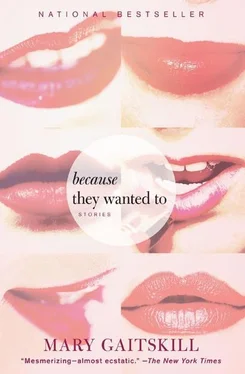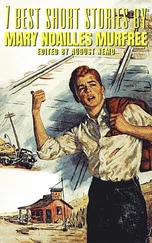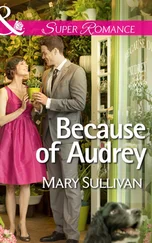Doreen was a former backup singer Jill had met through Joshua. She was forty-two. She lived in a tiny basement room in a house that she shared with several people, all of whom were on minimal government support for ex-drug addicts. The house was an odd mix of squalor, comfort, and mundane beauty. In the small, sorry yard giant roses grew, the petals almost fleshy in their dense unfolding, swollen with failing beauty. Adults, children, and animals lived together in the house, all scrambling after their divergent, yet interwoven, lives. The TV was usually on. They ate awful food and snacked hideously from pails of discount ice cream and bowls of candy. Doreen thought one of the little girls was being molested in day care, but the mother, who suspected Doreen of secret drug use and was trying to get her thrown out of the house, thought Doreen was dramatizing.
Doreen kept to herself in the basement, where she could smoke. She had covered the walls with paintings depicting horrible scenes from her childhood and posters of rock stars. Every time they talked, Doreen told the same stories about her abusive mother and her experiences with bands and coke dealers. They talked of other things too, but variations of these stories always ran through the weave. Jill had heard them many times, but she still liked the way Doreen told them: as sad and absurd as they were, she brought them out as if they were exquisite silk prints that she fluttered before Jill’s eyes and then lovingly folded away. It was as if, in preserving and keeping the stories present, she was somehow preserving herself, even though the stories were often about situations that had hurt her and led to her decline. Doreen was sick with hepatitis C, which would probably kill her one day. Even in this state her face had a strong, bitter beauty. Her full lips were well defined and richly striated, so that they resembled thick, fleshy petals. When she listened to Jill, she kept her lips open in a tense oval, which made her look dramatically receptive.
Doreen thought the dentist sounded like a speed freak ex-boyfriend of hers, who had cruelly manipulated her and stolen drugs from her besides. Jill thought it was an odd comparison. But as she sat there amid Doreen’s paintings, watching her put her cigarette between her dry, beautifully striated lips, she imagined the strange, staring night face she had given the dentist, his actual stilted calm, his jovial, seducing phone voice, all in contrast to Doreen’s wounded, still-potent femaleness. Again, she thought of the killer and the weeping mother who willfully drew near him.
Which made no sense, she thought. Surely the dentist was not a killer. She walked up the steep hill to her apartment, the cool wind making her dried sweat feel matte and almost grainy on her skin. It was night, and the slim branches of flower bushes swayed against the city light of the sky, their silhouettes trembling eerily. She remembered the dentist at his office with his hands in her mouth. She was aroused, and the ridiculousness of her arousal embarrassed her. But that wasn’t the dentist’s fault, was it?
During the next two weeks she called him twice. He seemed delighted to hear from her. He asked her how “that tooth” was doing. He talked about his work. His tone was jolly and defeated, as if Jill naturally understood—as if anybody would understand—that defeat and boredom were inevitable, and there was something jolly and comforting about that. Jill told him about the masochistic performance artist, how he had suffered as a child and how that had informed his masochism. The dentist seemed interested. He said he liked “freak shows,” the old-style carnival ones. “A good geek is hard to find,” he said. Jill said that she didn’t think this particular masochist was about a geek thing.
“He encourages people to relate to him,” she said, “to see how his masochism is just a different way of dealing with pain that every-body has.”
“Yeah, well, I—”
“I mean, look at the flap about recovered memories of sex abuse,” she chattered. “As a subject, sex abuse had become a metaphor for a lot of different kinds of pain. The problem is—”
“But sex abuse isn’t a metaphor, it’s—”
“What I mean is, I think many people with these recovered memories are really describing psychic abuse when they say they were molested, only they don’t have the language to describe that even to themselves. Lots and lots of people have experienced some severe neglect or emotional disregard as children. So when their therapists give them these suggestions of sexual violation, it rings true to them. Even though they may not have been literally violated.”
“But that’s shit,” blurted the dentist. “Families are being destroyed over these accusations, because somebody thinks they didn’t get enough attention when they were five?”
Excited by this thrilling friction, Jill shoved forward. “I don’t know how you were raised, George. But in this culture, in lots of families the level of emotional vibrancy is so low and so bland, and there’s so much emphasis on conformity—”
“I hate it when people talk about this culture as if it’s worse than anywhere else,” he said.
“Well, maybe other places are like that too; I don’t know. I’m just saying that for really bright, open kids, that denial of depth and intensity—it’s like having their arms and legs chopped off. It is violent. Besides, a lot of people are literally molested, and a lot of them do forget it.”
“But they’ve done studies that show that kids almost never forget traumatic experiences. The more traumatic and painful it is, the more likely you’ll remember it.”
“Well, I was molested when I was five and I forgot it. I remembered it when I was ten, when I was watching some old cartoons with bad animation, where the lips on the characters moved really stiff and disconnectedly from the rest of the face. I think it was because when the guy molested me, he didn’t look at me while he was doing it—he kept talking about other subjects, like nothing was happening. So when I saw those weird, jerking lips I got so excited I had to go masturbate, and while I was masturbating, I remembered being molested.”
There was silence on the other end of the phone. Jill had the distinct sense that the dentist had not liked hearing about her masturbating as a child but didn’t feel he could say so. She felt him move away. She moved forward.
“So,” she said, “I think the reason those cartoons made me remember was that the guy who molested me—his mouth and eyes were totally stiff and disconnected.” She did not tell him how she had felt before she got up to masturbate, of her embarrassment, her terrible sense of vulnerability, her feeling that everyone in the room—her brother, her sister, her father—could see what she was feeling. She did not tell him that after she had finished masturbating, her embarrassment became shame, and that the shame was so intense that she had gone to hide in her parents’ closet, way in the back, under her mother’s coat, where she held herself tight and tried to breathe.
Silence.
“George?” she said. “Does it make you uncomfortable that I’m talking like this?”
He said no, she could talk about whatever she wanted, but he had to go now. He said he would call her, except that he might be too busy.
Jill hung up feeling a little funny that she’d talked about being molested and the resultant masturbation. But she had wanted so badly for him to see what she’d meant. Since people talked about sex abuse all the time anyway, she had thought it was okay. But in retrospect, she thought, he’d probably just felt the intensity of her want pressing upon him without knowing what it was about, while being forced to think about her genitals. It must’ve been pretty confusing.
Читать дальше












